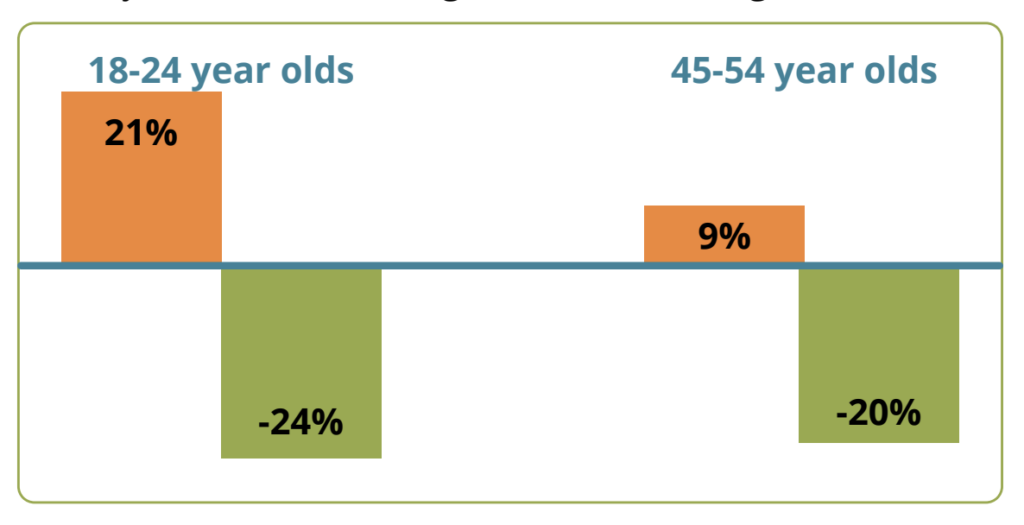
More than one in five Brits are eating less meat than they were a year ago, and two-thirds are open to reducing their consumption. Beans could be a winner here.
Despite the rise in meat-eating among Gen Z men, public willingness to cut back on animal proteins is growing in the UK, a new survey has found.
The poll, commissioned by Eating Better and the Food Foundation, involved over 1,700 participants and revealed a striking perception gap when it comes to meat consumption: the majority of Brits think less than 40% of people are open to the idea of reducing intake; in reality, 66% actually are willing to do so.
This is five percentage points higher than in 2024, showcasing a “clear public willingness” to decrease how much meat they eat. In fact, 22% of participants said they’re already consuming less of it than last year and half of them eat it less than four times a week. In contrast, only one in 10 UK consumers has increased their meat intake this year.
That said, the two organisations noted that several misconceptions about the health impact of meat-eating are holding back the protein transition. Moreover, for the first time in their annual survey, the environmental impact of livestock production wasn’t one of the top three drivers of meat reduction.
Health and environmental concerns around meat fade

How old you are and how much you earn influence your meat-eating habits, according to the poll. Only 9% people in low-income households (under £30,000 a year) are eating more meat and a quarter (26%) have cut back.
Among more affluent households (over £60,000), the share of consumers who have reduced their meat intake is the same as those who have upped their consumption.
Meanwhile, one in five (21%) Brits aged 18-24 are eating more meat than last year, versus 24% consuming fewer of these products. That gap is much more pronounced among Brits in the 45-54 age bracket, with 20% slashing the amount of meat they consume, and only 9% increasing it.
When it came to types of meat, lamb faced the most prominent chop, with 30% of Brits decreasing their intake, followed closely by processed meats (29%). On the contrary, 26% increase their fresh chicken consumption this year.
Though health and climate are usually the top motivators, the survey found that the top three reasons Brits were eating less meat were animal welfare, money, and the origin of animal products. The importance of health has nosedived from 35% last year to just 19% in 2025 – today, 30% of Brits think eating less meat would harm their health, more than the 26% who feel the opposite.

The report also highlighted a perception gap around protein – 45% of meat-eaters are worried about their protein intake if they were to reduce their meat consumption. Still, only 12% of meat-free respondents reported protein as a concern. “There is huge potential for plant-based protein to become more normalised to alleviate these fears,” Eating Better and the Food Foundation said.
Additionally, over a third of Brits agree that industrial livestock farming has a negative impact on animal and planetary health, rising to half of 18- to 24-year-olds, outlining the opportunity for the plant-based industry to capture more young consumers.
“Many people feel alone in their desire to eat less meat, but in fact, the majority of the country is open to reducing the amount of meat they eat. We all have our different reasons, but it’s clear that the desire for the meat we do eat to be better produced for the welfare of animals and lower environmental impact is key for many people,” said Sarah Wakefield, executive director of Eating Better.
Beans could be a win-win solution for the protein transition

Beans are at the centre of food discourse in the UK today, with brands like Bold Bean Co enjoying triple-digit growth and bean-derived products like tofu and tempeh becoming more and more popular.
This is reflected in the poll, where 44% of Brits said they want to eat more beans, compared to 33% who don’t. Beans largely enjoy a good reputation: three in five respondents enjoy eating them, 62% agree they’re tasty, and 73% feel they’re good for health.
Meanwhile, 53% believe beans are a good replacement for meat because they’re much more economical, and 50% say the same due to their climate-friendliness.
However, despite two-thirds saying beans are easy to prepare, only 42% are actually confident in cooking them. The share of people who feel well-equipped to cook with meat or in general is much higher (above two-thirds each).
The report suggests there’s an opportunity to increase bean consumption in the UK – currently, only 24% of Brits eat beans at least twice a week, versus 45% who eat a maximum of three times a month.

“With strong recognition of their health, affordability, and environmental benefits, we need to see investment into better supporting growers and developing bean supply chains, more businesses making beans more available and appealing, and better promotion and marketing of beans to boost the role of beans in diets,” the report said.
Eating Better is aiming to bring a 50% reduction in meat and dairy consumption in the UK by 2030, for which it has penned its Better by Half roadmap of 25 action points. These are directed to a range of actors, from government to food producers to investors.
The actions include delivering a national cross-departmental food and farming strategy, normalising sustainable diets through public procurement, putting more plants on restaurant menus and making these dishes more appealing, and embedding sustainable diet strategies across businesses.
The survey comes months after a Food Foundation report showed that Brits eat twice as much meat as the global average, calling on businesses and governments to “make beans and whole plant foods more appealing”.
The post Two-Thirds of Brits Are Open to Eating Less Meat, But Misconceptions Linger appeared first on Green Queen.
This post was originally published on Green Queen.